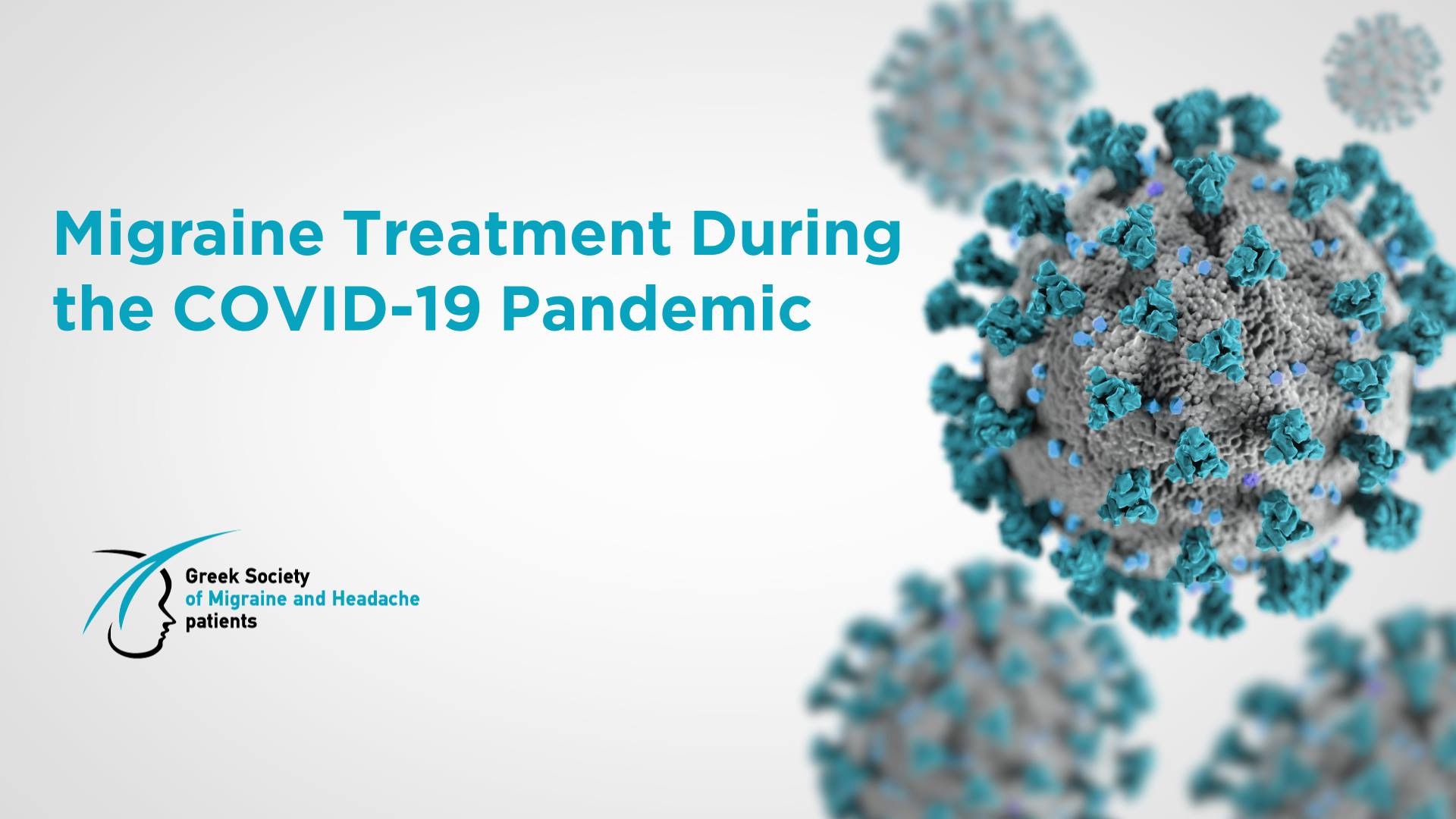Migraine During the COVID-19 Pandemic
As several patients with migraines have asked relevant questions about the SARS-CoV-2 virus pandemic that causes COVID-19 disease, the Greek Society of Migraine & Headache Patients, in collaboration with Headache Specialist Dr. Michalis Vikelis MD, MSc, PhD, would like to present the following data:
1. There is no evidence that patients with migraines are not more likely to develop COVID-19 than the general population. In addition, if they get sick, they are not more likely to have complications. In other words, patients with migraines do not belong to the vulnerable groups to COVID-19 disease, unless they have concomitant diseases, such as respiratory or cardiovascular disease or other.
2. In case of Covid-19 disease, headaches may occur, as with any febrile condition. In addition, it is known that migraine attacks may worsen during febrile conditions. If you have migraines and a significant increase in your attacks or if you have a new type of headache, contact your doctor, especially if you also have a fever.
3. Despite what has been widely heard, there is no scientific evidence that the use of anti-inflammatory drugs worsens the course of COVID-19 disease. The same goes for any other treatment you may get for migraine attacks, but also for preventative treatments. The initial concern of the World Health Organization (WHO) was revoked. It is not recommended to avoid ibuprofen or other non-steroidal anti-inflammatory drugs. You may continue to receive your analgesic treatment as usual. If you have any concerns, contact your treating physician.
4. Given the extent of the epidemic, it is advisable to avoid visiting Emergency Departments for treatment for migraine attacks. Contact your doctor and make sure you have enough and effective treatment options to deal with migraine attacks and take the appropriate preventive treatment, if needed.
5. It is important to follow the best possible treatment for your migraine. Maintain regular contact with your doctor and consult him/her for your treatment. Under no circumstances should you interrupt prematurely, change the dose, or prolong treatment without contacting your doctor.
6. Due to the lock-down situation, try to maintain a good lifestyle and a regular schedule in everyday life. Pay attention to regularity of your sleep hours and meals. Drink plenty of water, do daily exercise. Make sure you have enough stock of your medication.
7. Don't forget that stress, which is increased for many people in this period, is a known trigger rigger that can aggravate migraine. Learn about COVID-19 pandemic responsibly from official websites, such as the World Health Organization (WHO) website.
8. Given the conditions, prefer to contact the doctor via video conference, instead of a physical appointment. This applies to all re-examinations if they do not involve any treatment that requires physical presence (for example, Botox or peripheral nerve block). In case of need for an initial appointment, if the condition of your migraine requires it, contact your doctor first and find out if it is possible to do it with a video call. If it is eventually required to be done in person, take all necessary precautions. Make sure that the doctor's office you visit also complies with them.
Find a related article in Greek at www.headaches.gr
References
Szperka CL et al, Headache 2020
americanmigrainefoundation.org
- Προβολές: 5170
